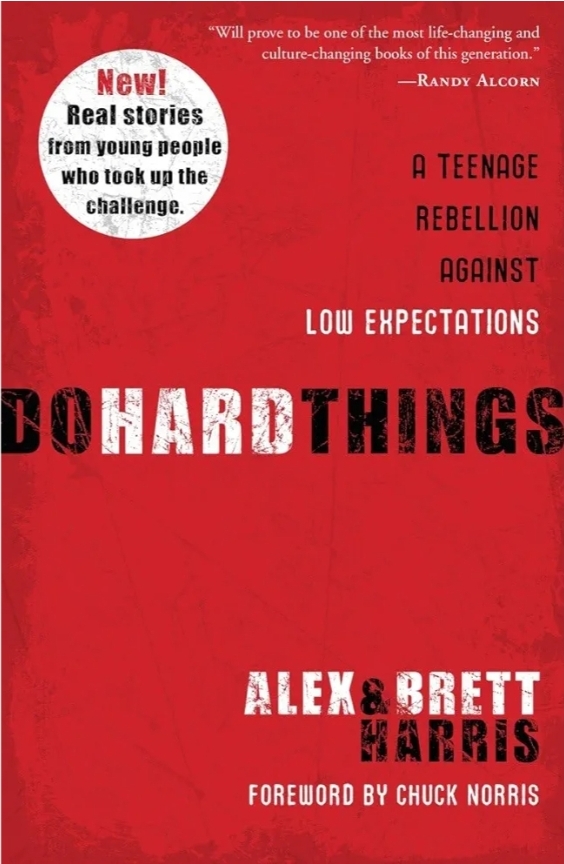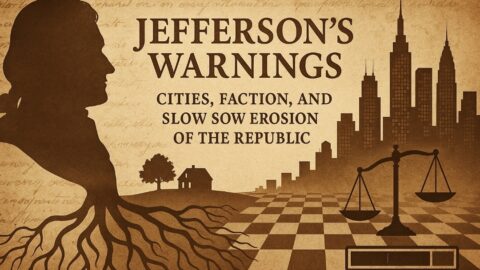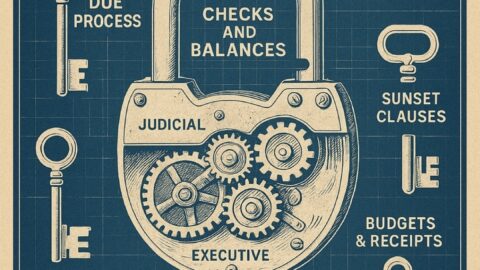Overview of the Book
“Do Hard Things” is a groundbreaking book written by Alex and Brett Harris, twin brothers who sought to challenge the cultural stereotypes and low expectations society often places on teenagers. The book is both a call to action and a practical guide aimed at inspiring young people to step beyond their comfort zones, reject mediocrity, and pursue excellence in their personal, academic, and spiritual lives.
The core message is clear: Teenagers are capable of far more than society expects from them, and the adolescent years should be viewed not as a time for leisure and self-indulgence but as a time for preparation, growth, and meaningful contribution.
Key Themes and Concepts
The Myth of Adolescence
- Society often views adolescence as a period for fun, laziness, and minimal responsibility.
- The authors argue that this mindset cripples potential and undermines the incredible capacity teenagers have to achieve great things.
- Key Idea: Adolescence should not be a waiting room for adulthood but a training ground for future success.
Do Hard Things
- The title encapsulates the book’s main challenge: Take on tasks and responsibilities that stretch you beyond your limits.
- Hard things are not necessarily grand or showy; they include simple, daily acts of discipline, integrity, and courage.
- Five Kinds of Hard Things:
- Things Outside Your Comfort Zone: Public speaking, leadership roles.
- Things Beyond Your Abilities: Learning new skills, tackling complex tasks.
- Things That Are Unpopular: Standing up for your faith or values.
- Things That Are Too Big to Accomplish Alone: Group projects, community service initiatives.
- Things That Don’t Pay Off Immediately: Investing in long-term goals.
A Call to Rebel Against Low Expectations
- Society often assumes teenagers are incapable of significant achievements.
- The Harris twins encourage readers to challenge these assumptions and prove them wrong.
- Key Idea: Low expectations create a ceiling on potential, and breaking free from them leads to extraordinary growth.
The Importance of Character and Integrity
- Doing hard things isn’t just about external accomplishments; it’s about building internal character.
- The authors emphasize discipline, honesty, and resilience as foundational traits for long-term success.
- Key Idea: Who you are becoming is more important than what you are achieving.
Faith as a Guiding Principle
- The book is deeply rooted in Christian principles and encourages readers to rely on their faith as a source of strength and direction.
- God is presented as a key motivator and enabler for doing hard things.
- Key Idea: True success comes from aligning your efforts with God’s purpose for your life.
Practical Steps for Doing Hard Things
- Start Small: Begin with small challenges that push you out of your comfort zone.
- Embrace Failure: View mistakes as opportunities to learn and grow.
- Find Accountability: Surround yourself with mentors and peers who will hold you accountable.
- Set Clear Goals: Define what “doing hard things” means for you.
- Take Ownership: Don’t wait for someone to give you permission to make a difference.
- Serve Others: Many hard things involve putting others’ needs above your own.
- Stay Consistent: Big achievements are often the result of small, consistent efforts over time.
Real-Life Examples
The Harris brothers share inspiring stories of teenagers who have taken on extraordinary challenges, including:
- Launching charitable initiatives.
- Leading youth movements.
- Overcoming personal fears to make a difference in their communities.
These stories are meant to inspire and demonstrate that hard things are achievable at any age.
Key Takeaways from the Book
- Challenge Yourself: Step outside your comfort zone and push your limits.
- Reject Mediocrity: Don’t settle for the easy path; aim for excellence.
- Focus on Character: Integrity and discipline are more valuable than accolades.
- Live with Purpose: Align your actions with meaningful goals and values.
- Rely on Faith: Use your faith as a source of strength and direction.
Why This Book Matters
- For Teenagers: It’s a wake-up call to rise above societal expectations and realize their potential.
- For Parents and Educators: It provides insight into how to empower and challenge teenagers effectively.
- For Society: It challenges cultural assumptions about adolescence and encourages a shift toward higher expectations.
The book emphasizes that success isn’t reserved for adults—teenagers have the capacity to lead, inspire, and make a meaningful impact now.
“Do Hard Things” by Alex and Brett Harris is more than just a motivational book—it’s a manifesto for a generation of young people to break free from low expectations, embrace responsibility, and pursue a life of significance.
By combining practical advice, real-life examples, and faith-based principles, the Harris twins deliver a powerful message: You are capable of more than you think, and now is the time to act.
Key Quote from the Book:
“The teen years are not a vacation from responsibility. They are the training ground of future leaders who dare to be responsible now.”
Boys Growing into Men in Early America: Bypassing the Modern Myth of Teenagers
The concept of teenagers as a distinct societal group is a relatively modern invention, popularized in the mid-20th century, particularly by media outlets like Reader’s Digest and Time Magazine. Before this cultural shift, young men in early America transitioned directly from boyhood to manhood without a prolonged adolescent phase of low expectations or delayed responsibility.

In early America, maturity and responsibility were expected early, and rites of passage into adulthood were often tied to practical contributions to family, community, and survival. Below are examples illustrating how boys became men in early America by bypassing the teenage myth:
George Washington – Taking Leadership Early
- Transition to Adulthood: At the age of 16, George Washington worked as a land surveyor in the Virginia wilderness.
- Responsibilities: This job required him to travel great distances, endure harsh conditions, and make decisions affecting property boundaries and legal disputes.
- Manhood Defined By: Independence, responsibility, and contribution to society.
Lesson: Early America expected young men to step into roles of responsibility and leadership at an age when modern society still views them as children.
The Apprenticeship System
- Context: In early America, many boys as young as 12 or 13 would leave home to become apprentices in a trade—blacksmithing, printing, carpentry, or farming.
- Responsibilities: They worked long hours, mastered a craft, and learned the discipline required for adulthood.
- Example: Benjamin Franklin became an apprentice at his brother’s printing shop at 12 years old. By 17, he had left for Philadelphia and was already an independent worker contributing to society.
Lesson: Practical skills, discipline, and work ethic were central to becoming a man.
Military Service – The Age of Soldiers
- Context: In both the Revolutionary War and the Civil War, boys as young as 14 to 16 served in militias or regular armies.
- Responsibilities: They carried weapons, followed orders, and sometimes led other men in battle.
- Example: Andrew Jackson, later the 7th U.S. President, was just 13 when he served as a courier during the Revolutionary War.
Lesson: Responsibility in critical situations shaped young men into adults far earlier than modern society expects.
The Frontier Life – Boys as Providers
- Context: Life on the frontier demanded that boys contribute significantly to the survival of their families.
- Responsibilities: By their early teens, boys were expected to hunt, farm, defend their homesteads, and protect their families.
- Example: Davy Crockett was tasked with hunting to provide food for his family by the time he was 12 years old.
Lesson: Survival on the frontier required boys to step into adult roles early, without space for prolonged adolescence.
Education and Self-Discipline – Abraham Lincoln
- Context: Education was often a privilege, and those who sought it had to be self-disciplined and motivated.
- Responsibilities: Abraham Lincoln, mostly self-taught, borrowed books and studied diligently by the light of a fire after long hours of physical labor. By his late teens, he was working as a manual laborer while continuing his self-education.
- Manhood Defined By: Self-reliance, discipline, and intellectual curiosity.
Lesson: A commitment to growth and responsibility marked the transition to adulthood.
Early Marriages and Starting a Family
- Context: In early America, it was common for men to marry in their late teens or early twenties.
- Responsibilities: A young husband was expected to provide for his wife, build a home, and raise children responsibly.
- Example: Many pioneers and farmers were already managing land and families by their early 20s.
Lesson: Marriage and fatherhood were seen as natural markers of manhood, requiring maturity and responsibility.
Faith and Spiritual Maturity
- Context: Churches and religious communities often expected young men to take on leadership roles in their congregations.
- Responsibilities: Teaching, preaching, or supporting the spiritual needs of their community.
- Example: Jonathan Edwards, one of the great preachers of the First Great Awakening, entered Yale at 13 years old and became a pastor in his early twenties.
Lesson: Spiritual responsibility was considered a sign of maturity and manhood.
Why the Shift Happened – The Creation of Adolescence
- Industrial Revolution: Removed children from farms and homes and placed them in schools or low-skilled factory jobs.
- Child Labor Laws: Created a protective gap between childhood and adulthood.
- Compulsory Education Laws: Extended adolescence by keeping young people in schools until their late teens.
- Mass Media Influence: Reader’s Digest and other media began romanticizing adolescence as a distinct life stage focused on self-expression, leisure, and consumption.
Result: A cultural expectation emerged that teenagers should have minimal responsibility and maximum freedom, delaying their transition into mature adulthood.
Lessons from Early America
- Responsibility Precedes Maturity: Responsibility wasn’t something given after a young man proved himself; it was the proving ground.
- Skills Were Learned Early: Young men were expected to acquire practical skills early in life.
- Community Expectations: Societal and family expectations encouraged growth and responsibility rather than prolonged adolescence.
- Purpose Over Pleasure: Early Americans valued contribution, duty, and faith over self-indulgence and temporary pleasures.
Conclusion:
In early America, boys transitioned into men through responsibility, purpose, and community expectations. Whether through apprenticeships, military service, providing for their families, or spiritual leadership, young men were trusted with real, meaningful tasks.
Today, as Alex and Brett Harris advocate in Do Hard Things, we can learn from this era by raising expectations for young people and helping them see adolescence not as a waiting room but as an opportunity to prepare for a life of integrity, purpose, and leadership.






